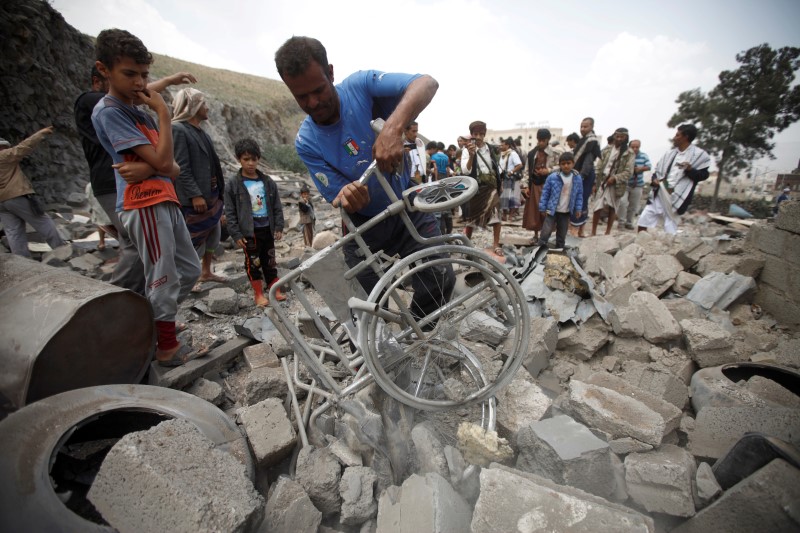By Stephanie Nebehay
GENEVA (Reuters) - The United Nations human rights office called on Thursday for more light to be shed on the Saudi-led coalition air strikes in Yemen and for violations including attacks on protected sites like hospitals to be punished.
Air strikes by the Saudi-led coalition are responsible for "the single largest part", some 60 percent, of the 3,799 civilians killed since March 2015 and it has committed other violations that may contravene international law, it said in a report.
Though the coalition had shared findings from its own internal investigations, "more transparency" was needed, Mohammad Ali Alnsour, chief of the Middle East and North Africa section of the U.N. human rights office, told a briefing in Geneva.
"The compensation of the victims is an important element but it is not the only element. We think there should be a kind of accountability and these violations not to be repeated again," he said.
Houthi rebels and allied forces loyal to former President Ali Abdullah Saleh, who rule the capital Sanaa, have carried out rocket and mortar attacks on residential areas and used landmines, the report said. These also constituted documented violations that should be addressed.
The rebels had imposed sieges on the northern town of Taiz and control the Red Sea port of Hodeida, it said.
"All sides are responsible (for violations). There was targeting of civilian objects ... like markets, like wedding ceremonies, hospitals, facilities that really under international humanitarian law is protected and have a special kind of legal protection," Alnsour said.
In a statement, U.N. High Commissioner for Human Rights Zeid Ra'ad Al Hussein called for an international investigation into all grave violations, saying a national commission had focused mainly on Houthi violations and not pursued any of the perpetrators.
But the U.N. stopped short of accusing either side of war crimes, saying it was for a national or international court to decide.
"We are investigating, monitoring the violations but we cannot decide that this a crime or not, this is for a tribunal or for a specific body to decide. We cannot have this assertion that there is a crime or war crime," Alnsour said.
"We are saying while conducting military operations there are specific principles should be respected to minimise civilian casualties," he said.
U.S. Secretary of State John Kerry held talks with Saudi Arabia's powerful deputy crown prince, Mohammed bin Salman, into the early hours of Thursday morning aimed at finding ways to end Yemen's conflict and resume peace talks between the warring sides.

"The prolonged duration of the conflict has strongly heightened the disastrous risk of a systemic collapse of Yemen," the U.N. report warned.